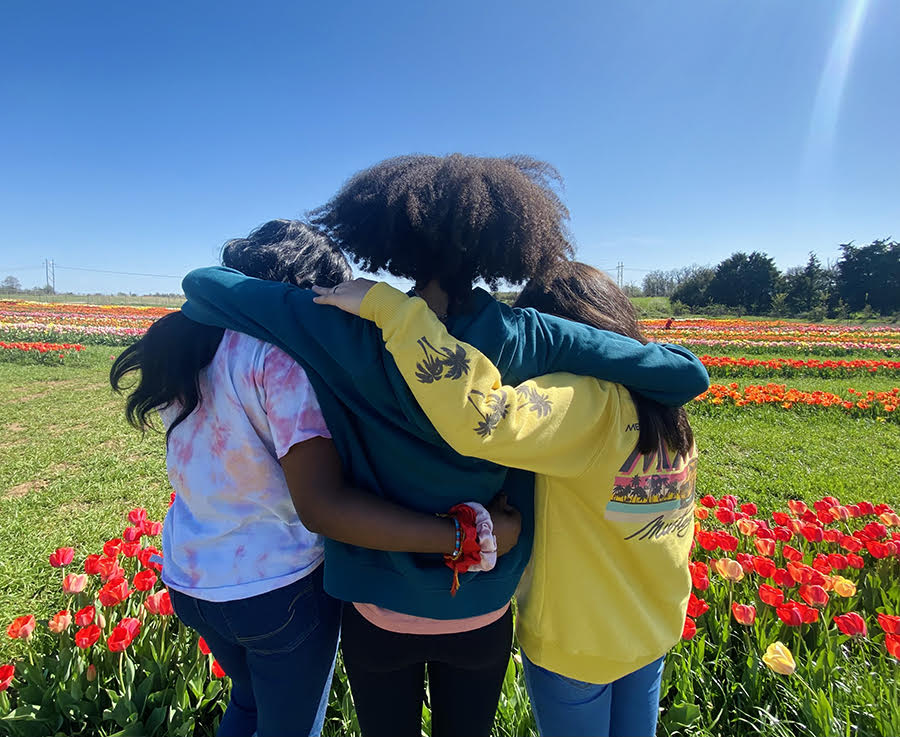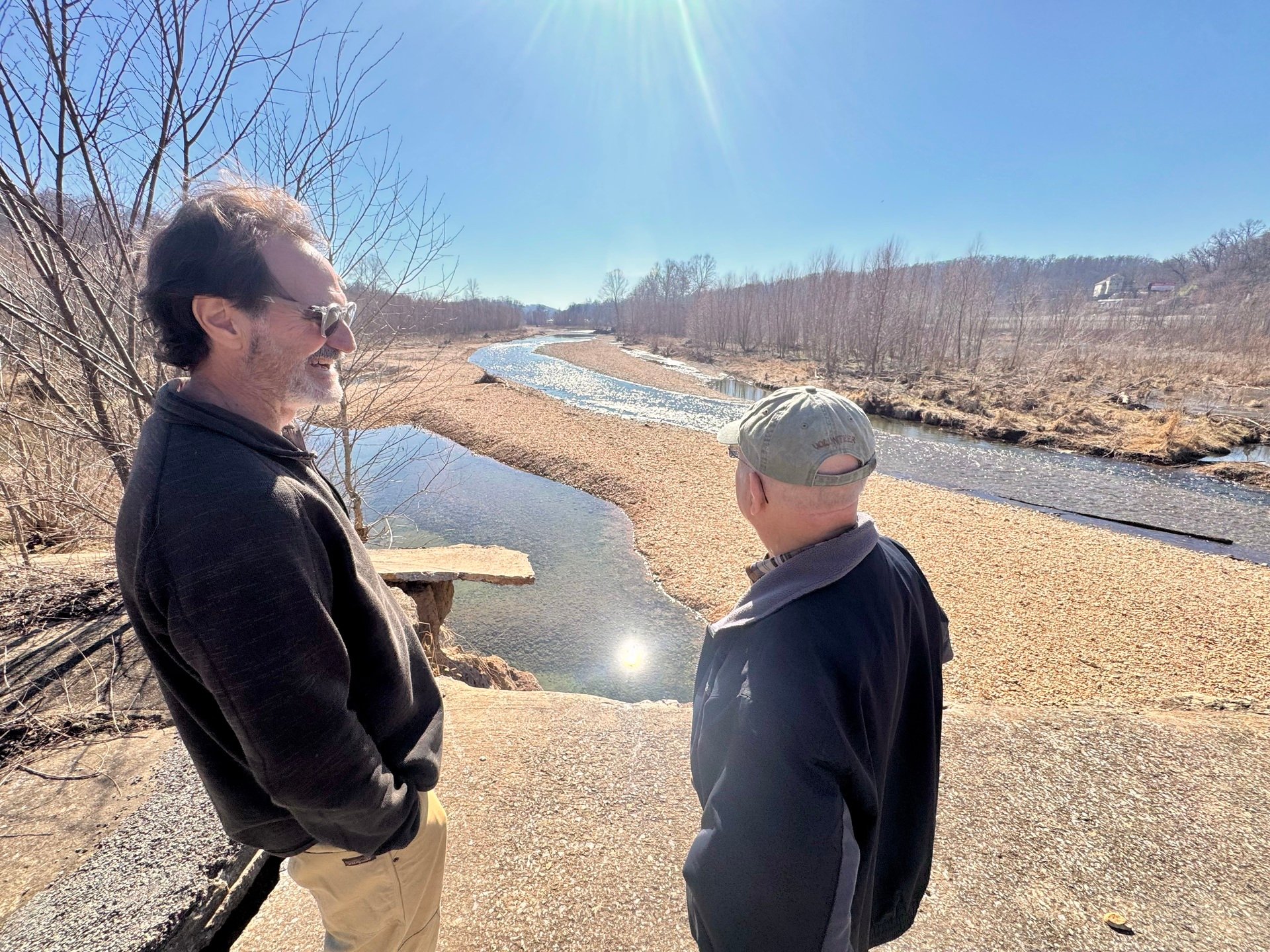Just over a mile from downtown Bentonville on Northwest A Street, Riley Silva walks the rows of her 3-acre urban farm, pointing out the tightly planted vegetables — tomatoes, onions, beets, garlic, lettuce — all thriving in neat succession.
In a small area on the backside of the farm sits a tangle of overgrown weeds around broken tree parts, remnants of the 2024 Memorial Day weekend tornadoes that caused major damage throughout Northwest Arkansas.
“This is our scary corner that we’re still trying to clean up,” said Riley, who, along with her husband, Dominic, took over running the urban farm in February. “It really just crushed things back here.”
Last year’s storm devastated the farm, wiping out all the crops, fences, and high tunnels — greenhouse-like structures that protect plants from the elements. It was the final straw for the farm’s previous owner, who decided he was ready to let go of the project.
Passing the Torch
The farm sits within Red Barn, an “agrihood” — a residential community designed around a working urban farm. The concept, introduced to Bentonville in 2019 by Springfield, Mo.-based development and property management company Green Circle Projects, is thought to be the first of its kind in the state.
After the storms, the Silvas — who were both working as employees at Red Barn at the time — decided to take the helm, securing a lease from the property owner at the beginning of this year and naming their venture FarmHand. They formed a nonprofit “farm incubator” to continue Red Barn’s initial mission to train the next generation of farmers.
“We provide a space for beginning farmers to come and start their businesses for a few years before they move on to their permanent location,” said Riley, who also teaches at the Center for Arkansas Farms and Food.
They currently have one farmer growing mushrooms on site, and two more are slated to take over plots in the near future. Beginning farmers are defined as having 10 years or less experience in farming, although Riley said they require at least one year of commercial farming experience in order to have a foundation to build on.
“Our dream for this place is that this is just filled with farmers, farmers like us,” said Riley, who has been farming for eight years. “My husband and I, we've built farms with nothing but 5-gallon buckets, a wheelbarrow and some shovels. … As much as this is a gift, it's also a lot of work, and we want to share this gift with other people who really just need someone to take a chance on them.”
A Growing Mission
FarmHand currently runs a community-supported agriculture (CSA) program, where members pay a fee to receive a weekly bag of fresh vegetables for eight weeks. They’re now halfway through their spring CSA and will open registration for the fall season soon after it wraps up.
Riley and Dominic also run a farm store on site, where the community and Red Barn residents can purchase produce, and they are working to expand the store to offer more local food items beyond vegetables. Most of the rest of what the farm produces is sold to The Hive, a downtown Bentonville restaurant. Riley said Executive Chef Micah Klasky was instrumental in helping FarmHand get up and running.
“What we have going on here, it's still really new,” Riley said, noting that FarmHand just hit its 100-day milestone in business. “There's still a lot to develop and continue to improve and build, and there's so much support and momentum, even though the organization is so young.”
Riley said they donate produce to the Northwest Arkansas Childrens Shelter, and as their venture grows, her goal is to donate at least 10% of their harvest to a youth hunger program — a cause she's deeply passionate about, having previously farmed in support of hunger relief.
Other upcoming projects include hosting a community movie night on the farm and reviving the seasonal farm dinners, similar to the summer events once held at Red Barn Farm. In the spirit of an agrihood, Riley said their desire is to be a space where the community comes together to connect.
“Even people who come out here who really have never been around a farm, have never been around a garden, they just love this stuff intrinsically. It's just so innate to who we are as people,” she said. “This is an incredibly central and urban spot, and not only do we want it to be of benefit to our farmers, not only do we want it to be of benefit to the people in our agrihood, but we want people to connect back to farms.”






